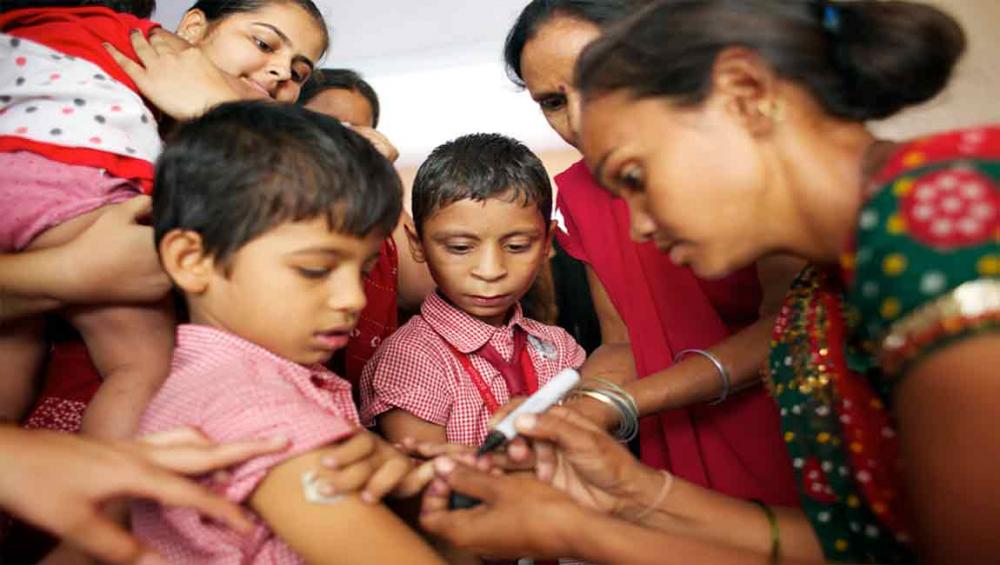Just Earth News | @Just Earth News | 27 Oct 2017, 05:53 am Print

UNICEF/UNI133530/Pietrasik
“We have seen a“substantial drop in measles deaths for more than two decades, but now we must strive to reach zero measles cases,” said Jean-Marie Okwo-Bele, Director of the World Health Organization’s (WHO) Department of Immunization, Vaccines and Biologicals, in a joint statement on Thursday for the Measles and Rubella Initiative (MR&I).
The study, published by MR&I – a partnership formed in 2001 between the UN Children’s Fund (UNICEF), WHO, UN Foundation, American Red Cross, and US Centers for Disease Control and Prevention – marks the first time that global measles deaths have fallen below 100,000 per year.
“Measles elimination will only be reached if measles vaccines reach every child, everywhere,” added Dr. Okwo-Bele.
Since 2000, an estimated 5.5 billion doses of measles-containing vaccines have been provided to children through routine immunization services and mass vaccination campaigns, saving an estimated 20.4 million lives.
However, the world is still far from reaching regional measles elimination goals.
According to the joint statement, people being treated with the first of two vaccine-required doses have stalled at approximately 85 per cent since 2009, far short of the 95 per cent coverage needed to stop the infections, and coverage with the second dose, despite recent increases, was only 64 per cent in 2016.
Some 20.8 million children are still missing their first measles vaccine dose – more than half of whom live in six countries. Nigeria has 3.3 million unvaccinated children; India has 2.9 million; Pakistan, two million; Indonesia, 1.2 million; Ethiopia, 0.9 million; and in the Democratic Republic of the Congo, 0.7 million are not immunized.
Since measles is a highly contagious viral disease, large outbreaks continue to occur in these and other countries in Europe and North America, putting children at risk of severe health complications, such as pneumonia, diarrhoea, encephalitis, blindness and death.
Countries with the greatest number of measles deaths rely most heavily on polio-funded resources. Once polio eradication is achieved, those resources, which support routine immunization services, measles and rubella vaccination campaigns and surveillance will be at high risk of diminishing and disappearing, reversing the progress made.
- New hybrid Mpox strain surfaces in UK and India — WHO sounds global alert
- Deadly weight: Obesity now responsible for 1 in 10 infection deaths worldwide
- Coffee and tea: This everyday drink may help protect your brain from dementia
- Happy Chocolate Day! The sweet secret behind chocolate’s hidden benefits
- Cambridge study finds menopause affects memory, mood, and sleep





-1763561110.jpg)
